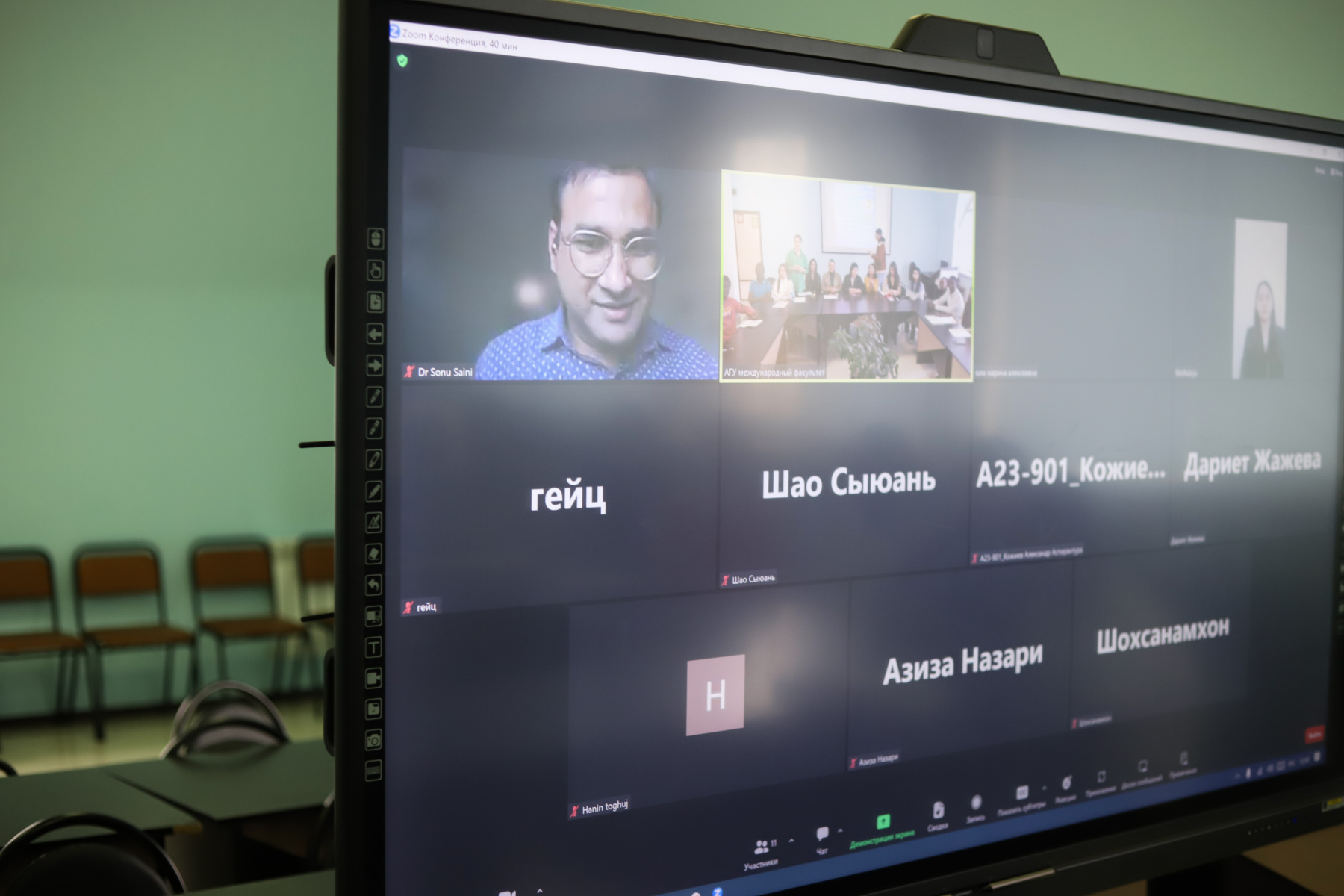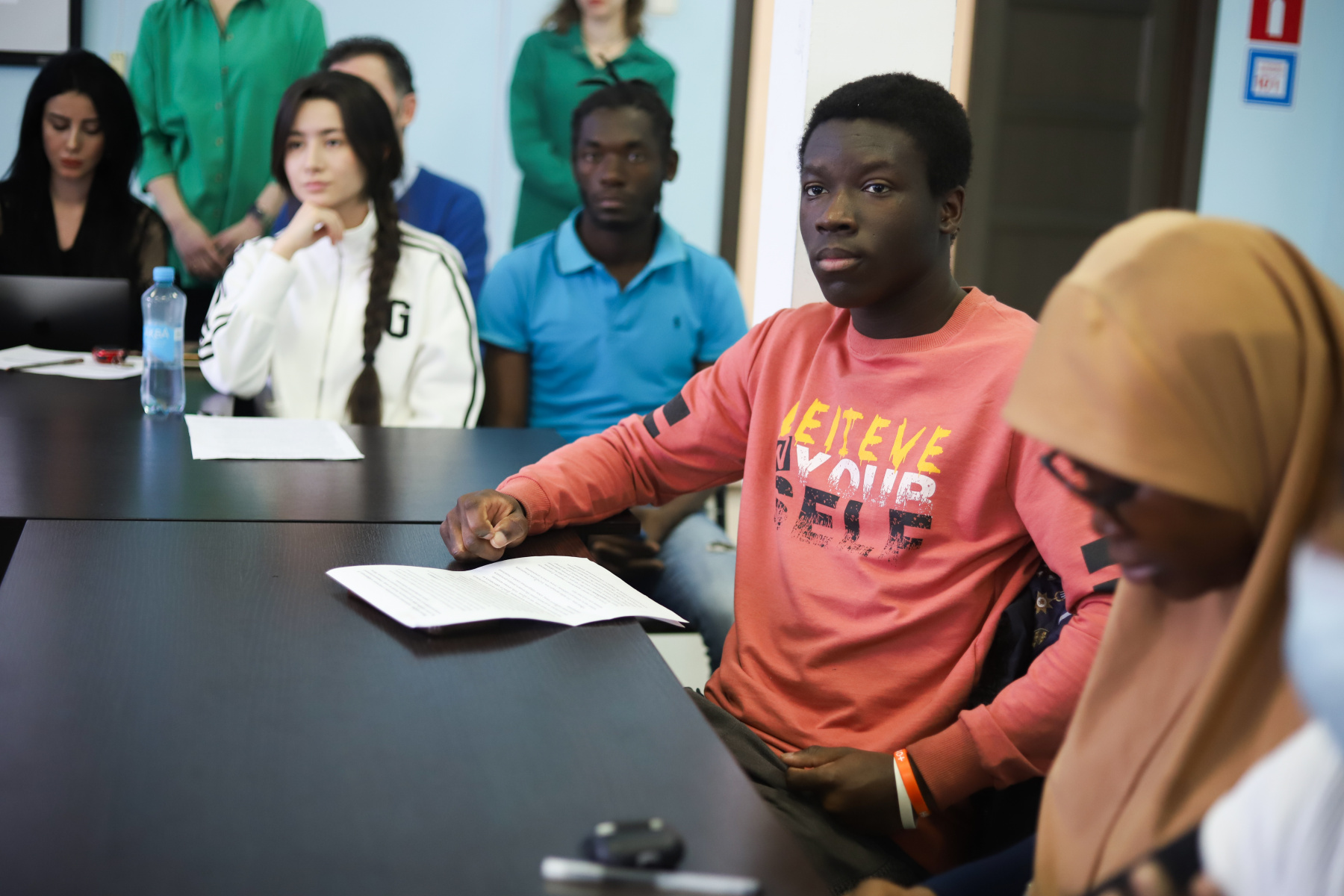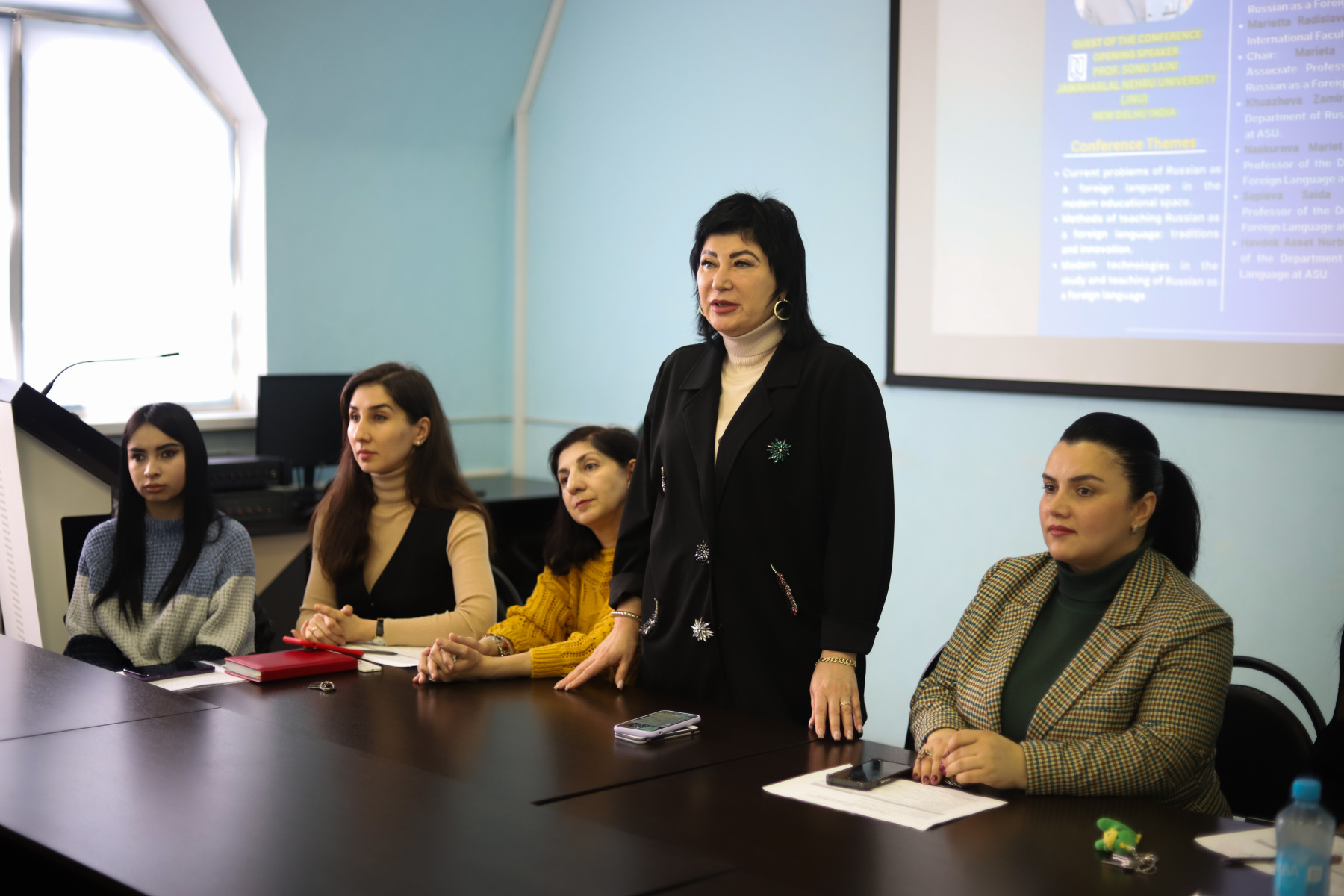The International Conference on Russian as a Foreign Language Hosted at ASU with Special Guest Prof. Sonu Saini from JNU, INDIA
35 Participants from 10 different countries, including Uzbekistan, Turkmenistan, Belarus, China, Syria, Iraq, Kenya, Congo, Benin, and Ghana, applied to take part in the event. Additionally, students and young scientists from various Russian cities such as Maykop, Moscow, St. Petersburg, Voronezh, Rostov-on-Don, and Vladivostok were also among the participants.

The conference was held in a hybrid format. The opening was attended by the guest of honor from India Professor Sonu Saini, Center for Russian Studies (CRS) at the Jawaharlal Nehru University (JNU). Professor Saini is one of the leading experts in the field of innovative methods of teaching Russian as a foreign language with the aid of the latest technology, he is also the founder and Chairperson of the Indo-Russian Research Foundation and Association of Translators-Interpreters of Indian Rusists and he has been working as a interpreters for more than 15 years with both ministers of India and Russia. on the other hand Professor Susanna Tlekhatuk, Vice-Rector of the International Affairs and Professors from the International Relations department of ASU have attended the conference.
Topical issues of the conference were issues related to the use of artificial intelligence in the methodology of teaching RFL, and the problems of teaching Russian to students from China and the African continent.
Features of teaching RFL for African students

In connection with the increased interest of African countries in the study of the Russian language and Russian literature, problems arise related to both the insufficient base of educational materials and the need to introduce new methods, techniques, and techniques into the educational process. In addition, there are problems associated with an insufficient number of trained personnel (teachers, administrative personnel) to work in all countries of the African continent, as well as insufficient promotion on the Russian side of language and culture courses, which results in an urgent need to apply marketing strategies. The conference discussed the creation of a modern full-format publicly accessible digital educational platform. It will provide an opportunity to improve the level of performance of the Russian education system abroad.
The online complex on the subject “Russian Language” for cultural centers will also allow foreign students to broaden their horizons thanks to the emergence of a new international dimension in their general education program, ensured by familiarization with the Russian language, Russian culture and, in fact, with Russian reality. It is also important that with the help of the Russian interactive educational platform it becomes possible not only to teach foreign students specific knowledge and competencies related to communication in Russian but also to organize creative entertaining situations in the lessons, as well as episodes that create positive motivation in general for the process of acquiring new knowledge, thus making a positive contribution to the work of foreign schools,” said the international faculty of ASU.
Features of teaching RFL for Chinese students

Another topic was The difficulties of Mastering the Category of Gender and Number of Russian Pronouns by Chinese students. The lack of coordination of pronouns by gender, number, case with nouns and other parts of speech in the Chinese language makes it difficult for Chinese students to master the Russian language and leads to a violation of the grammatical correctness and communicative adequacy of their statements. The difficulty lies in the significant difference in mentalities. And in the context of globalization and multicultural communication, learning Russian as a foreign language is becoming increasingly important, especially in countries with significant linguistic and cultural differences, such as China and Russia. Here, the participants noted and discussed the specificity of lexical work when mastering the verbal system of the Russian language in a Chinese audience. This is especially true for the initial stages of learning (level A1, A2), where the foundation is laid for further in-depth study of the language.
 AGU
AGU


 Russian
Russian
 English
English

